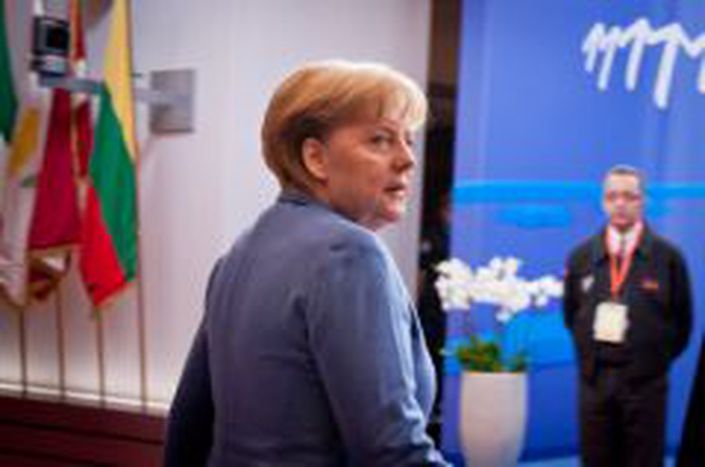
With or without him
Published on
By Lisa Kittel “Will there be another summit this year?”, a question asked to Merkel after the December summit this year. It’s true that there have quite been a lot meetings of late at the European Council. Merkel already seems to know every single correspondent by face, and eventually might even notice if they get their hair cut.
As familiar as the press conference appears as familiar is the main topic: the Euro crisis.
But, although Angie still emphasises “Ladies and gentlemen, we can only go step by step”, this summit was a political course in the direction of legally binding commitments. Well, for everybody but David Cameron.
Have a look on the Without-Great-Britain-List
To start a fiscal union, member states accept more constraints. They pledged, for example, to submit draft budgetary plans to the European Commission. They will also work on binding measures for countries with excessive deficits. Most importantly, they will finally transpose their good will and this new strong fiscal rule into their constitution or equivalent. This seems finally like doing something after having thought and thought both solutions and doomsday scenarios.Yes, the ability to fantasise the latter was also needed to think through the Euro crisis, next to the ability to reason.
We have “increased our financial resources”, Merkel stated, meaning the money to transfer all into the Euro rescue fund. Euro area and member states will aim to make available additional resources of up to 200 billion euro in the IMF (International Monetary Fund). And the financial mechanisms are not only broader but also faster: The EFSF (European Financial Stability Facility) shall be deployed “quickly”, with leverage. And the sudden acceleration goes on: the ESM (EuropeanStability Mechanism) rescue fund shall enter into force in 2012 instead of 2013.
Like the correspondents' buddy Merkel says, with the legal commitments and more institutional power for the Commission and the European Court of Justice, ”the rescue fund becomes a treaty”.
So, 17 euro zone countries and six others, Bulgaria, Denmark, Latvia,Lithuania, Poland and Romania, will conclude this fiscal treaty, which shall be inserted to the European treaties afterwards.
20 years after the foundation of the monetary and political union, Angie and her European colleagues also admit faults: “We understood that the Monetary union must be planted on a stronger base. We must overcome some failings.”
After these without-Cameron-results, let’s wish Merry Christmas! - because there won’t be another summit this year.



